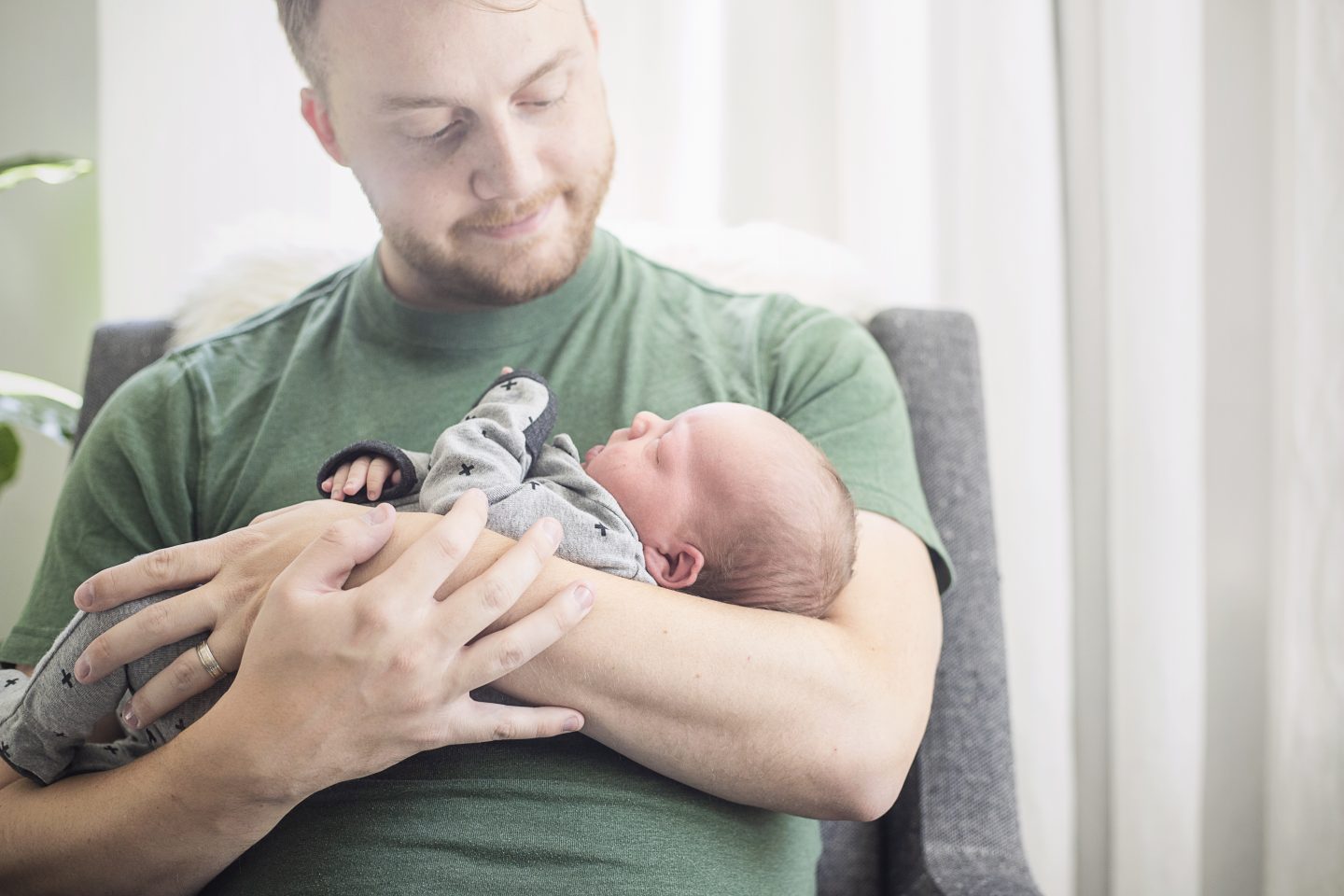For the very last installment of this 4th trimester series, I’ve asked my wonderful husband, Todd, to guest post. When a new baby joins the family, mom isn’t the only one with a new schedule, and I hope that Todd’s insights help other partners know what to expect, and what we’ve found has worked well.

Supporting the postpartum woman is not essentially different from being a supportive partner in general, but in the moment, it can be difficult to remember the simple basics. Here I’ll cover what those basics are and then provide a few potential situations that could arise that might create difficulties.
be empathetic – the most important thing while supporting your partner after birth is to be empathetic. Her body and her life have gone through some major stuff, and you must keep that in mind before deciding how you’re going to react to any interaction with your partner. Think how you would feel if you performed some kind of feat that required you to “take it easy” for six to eight weeks afterward, and to be cautious for the rest of the year after that. It’s a substantial physical trial and you must keep that in mind. Additionally, there is now another person who is completely reliant on your partner for survival. That kind of responsibility is daunting for anyone, and when you put together the physical and emotional strain, your partner is going through a lot of things during the postpartum weeks. It’s essential to always remember that.
provide relief -the most important thing you do for your postpartum partner is to lighten their load and make room for the postpartum period to be as successful as possible. There’s a lot of stuff your partner was doing before the baby came along, but now you’re going to have to do that. That doesn’t mean that your partner is going to stop caring about these problems though. For example, one morning they may wake up and fret about the laundry not being done for the week, and it’s much better to be the kind of person who can say “I already took care of that last night,” than the one who says “I guess we’ll just wear dirty clothes, then.” Dismissing your partner’s worries don’t make them go away, and it can take a large toll on their already exhausted life.
be organized – while your partner might be the one primarily in charge of keeping the new baby alive for the first few weeks, the rest of the world keeps on turning. This means that you’ll probably have to adjust and take on more responsibility to keep the household moving. The only way you can possibly do this is with a well organized routine or system to keep things moving. For me, that meant waking up about an hour before everyone else and creating a to do list of necessary tasks for the day. I checked back in on this list about every hour to keep track of my progress and to remind myself what else needed to be done. This allowed me to pick up the slack that was left when my wife needed to spend more time caring for the new baby. I managed to keep the house mostly clean, the garbage cleared out, the toddler cared for, and dinners on the table. Maybe todo lists aren’t your thing, but there are many kinds of organization tools out there that you can utilize to keep you focused on the most necessary tasks. I recommend something like Trello, but the stock todo list app on your phone (such as Reminders) is sufficient.
just get it done – while you’re powering through the tasks that need to be done each day, you may be tempted to take a break and indulge in consuming some entertainment. I did not find this to be useful. Mostly it just broke my rhythm and left me feeling like I wanted even more free time. The best thing you can do is remained focused on what you need to do that day, and on providing empathy and support for your partner. There will usually be some time in the evening when the children have fallen asleep where you can do whatever it is that you do (I recommend playing Stardew Valley to unwind). Trying to work it into the middle of the day is a recipe for frustration.
don’t keep score – sometimes you may be tempted with a thought like, “I just washed the dishes, did the laundry, and made dinner, and all my partner did was lie around snuggling the baby!” This is not helpful thinking. First, it lacks empathy. Remember, your partner is going through an extreme life change, and can’t physically do all of the chores she used to do. Secondly, these thoughts do not recognize the real effort that goes into caring for a newborn. They really can be a huge pain in the butt, and just because your partner has been rocking the baby for six hours rather than cleaning out clogged j traps doesn’t mean that she hasn’t been working. Lastly, she just carried that baby for nine months and in my experience the last three are really unpleasant for her, so she deserves a bit of a break.
For the two children that we’ve had in our family, I’ve had a different life situation for both of them, and that has changed the way I approached the postpartum period a bit. For our first child I was working from home, but didn’t have any time off to focus on the family, whereas when my second child was born, I had to go into the office, but my company did provide five weeks of parental leave (companies shouldn’t “provide” parental leave, it should be a privilege protected by our social institutions, but that’s a topic for another day).
The first situation was a bit complicated, because I had to juggle my work responsibilities with the desires of my wife, and I couldn’t hide at the office or anything like that. That meant that I ended up working late on a quite a few days while I made up time working that had been taken by caring for my family’s needs earlier in the day. This wasn’t exactly ideal, and I felt burnt out quite often. On the good side, it was our first child so that did reduce the amount of work that needed to be done in general.
For our second child, the parental leave was very useful. It allowed me to focus all my energy on keeping the household running and watching after our toddler, in addition to occasionally providing my wife with breaks from baby care. Parental leave is a great thing that really helps a family succeed and it makes sense that most developed nations have adopted it as national policy.
Good luck, be empathetic, and get it done. Babies are only babies for so long, and you’ll get through it.

